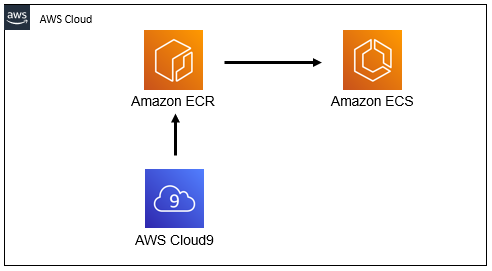
You can install Apache on Ubuntu using the command "apt-get install apache ubuntu". Before you install Apache, check that your firewall software is allowed. Ubuntu's firewall program is called ufw. Open ufw and select the option "allow connections". The output should show whether Apache is allowed or not. If it is allowed, then you should see "active" for the Apache server.
Prerequisites
Before installing Apache to your Ubuntu-based machine, ensure that you have the right prerequisites. You need access to sudo to be able edit files. You also need to have administrative privileges for your user account. After completing the prerequisites, you can start installing the web server.
First, enable port 443, and then enable firewall. To do this, run sudo "ufw allow" in Apache Full. This will enable HTTPS and HTTPS ports. You should also ensure you have at most 50MB of space. The Apache server will require approximately 10MB disk space once the installation has been completed. However, the actual space required depends on the configuration options, third-party modules, and the size of your web site. Also, Apache requires an ANSI-C compiler. If your compiler is from a different vendor make sure that it supports ANSI C. Make sure your path contains the basic building tools.

Configuring a UFW firewall
After installing UFW on your computer you will need to create rules to protect it from unauthorized connections. UFW firewall has many options for configuring its firewall rules. You will first need to set up a netmask that prevents UFW's from accepting connections from IP addresses not belonging to your subnet. The second step is to define a policy to control how many connections are allowed. UFW has a default policy of "deny." This policy allows only certain connections, and blocks all other connections. You can also delete rules by number or name.
UFW allows you to set up firewall rules to restrict incoming connections while allowing only outgoing connections. This is the default setting that provides the highest security. You can also block IP addresses ranges, ports, programs, or combinations thereof. To change the policy you will need to modify /etc/default/ufw.
Reloading Apache web servers
Reloading Apache Web Server on Ubuntu is very simple. This can be done by using the systemctl commands. However, you must note that it may take a few moments to complete. You may also experience unexpected disruptions to your server if the configuration is large or complex.
In this case, it is important to check all the configurations and restart the web server. Check that the system does not contain any zombie processes. This is vital because unreliable Internet connections can cause the web server to be unable to function.

Configuring virtual hosts
One of the most common ways of allowing multiple domains to run on a single Ubuntu server is by configuring multiple Apache virtual hosts. This powerful tool allows you host many domains on one server, with only one IP address. Virtual hosts allow you to configure any host name and are flexible.
This method can be tricky for beginners, as there are many options to configure. But it can be done by following a few simple steps. First of all, create a directory that will contain your sites' files. This directory will be the document root. This is where all site data will be kept. The default directory will always be /var/www. However, virtual hosts will have theirs.
FAQ
What is the best platform for creating a website design?
WordPress is the best platform when it comes to designing websites. WordPress offers all the features needed to make a website professional looking.
These themes are simple to install and modify. You have thousands of options for free themes.
You can also install plugins to increase functionality. They allow you add buttons to social media and form fields, as well as contact pages.
WordPress is also very user-friendly. To modify your theme files, you don't need to be able to code HTML. To change your theme files, all you have to do is click on an image and select the desired changes.
There are many other platforms, but WordPress is my favorite. It has been around for years, and is still in use by millions.
What Kinds Of Websites Should I Make?
It all depends on what your goals are. If you are looking to build a business from your website, it may be beneficial to focus on selling online products. This can only be achieved by building a solid eCommerce website.
Blogs are another popular type of website. Each of these requires different skills and tools. For instance, if you want to set up a blog, you will need to learn about blogging platforms such as WordPress or Blogger.
It is important to choose the right platform for your site. There are many templates and themes that are free for each platform.
Once you have decided on a platform, you are able to start building your website by adding content. Images, videos, text, and other media can all be added to your pages.
Your new website is ready to be published online. Once your website is published, visitors will be able to access it in their web browsers.
What is the cost of creating an ecommerce website?
It depends on which platform you choose, and whether the freelancer is employed directly or through a service provider. eCommerce sites usually start around $1,000.
However, once you decide on a platform, you can expect to pay anywhere between $500 and $10,000.
The average cost of a template will not exceed $5,000. This includes any customizing you do to your brand.
Statistics
- The average website user will read about 20% of the text on any given page, so it's crucial to entice them with an appropriate vibe. (websitebuilderexpert.com)
- At this point, it's important to note that just because a web trend is current, it doesn't mean it's necessarily right for you.48% of people cite design as the most important factor of a website, (websitebuilderexpert.com)
- Did you know videos can boost organic search traffic to your website by 157%? (wix.com)
- In fact, according to Color Matters, a signature color can boost brand recognition by 80%. There's a lot of psychology behind people's perception of color, so it's important to understand how it's used with your industry. (websitebuilderexpert.com)
- Studies show that 77% of satisfied customers will recommend your business or service to a friend after having a positive experience. (wix.com)
External Links
How To
What is website hosting?
Website hosting refers to where people go when they visit a website. There are two types:
-
Shared Hosting - This is your cheapest option. Your website files reside on a server owned by someone else. Customers who visit your website send their requests via the Internet over to that server. You then receive the request from the owner of the server.
-
Dedicated hosting is the most expensive option. Your website is located on only one server. Your traffic stays private as no other websites can share the same server.
Because it is less expensive than dedicated hosting, shared hosting is preferred by many businesses. You can use shared hosting if the company owns the server to provide the resources required for your website.
However, both have their advantages and disadvantages. These are the key differences between them.
Pros of Shared Hosting
-
Lower Cost
-
It's easy to set up
-
Frequent Updates
-
It can Be Found On Many Web Hosting Companies
Shared hosting can often cost as little as $10/month. However, this price typically includes bandwidth. Bandwidth describes the amount of data that can be transferred over the Internet. So even if you only upload photos to your blog, you may still pay extra money for high amounts of data transferred through your account.
Once you begin, you will soon see why you spent so much on your previous host. Most shared hosts don't offer any customer support. You'll be on your way after they walk you through setting it up.
Providers that offer 24-hour customer support are worth looking into. They will attend to any issues you have while you sleep.
Cons of dedicated hosting
-
More Expensive
-
Less common
-
Requires Special Skills
You're getting everything you need with dedicated hosting to operate your website. You won’t need to worry whether you have enough bandwidth or enough RAM (random address memory).
This means that you will have to pay a little more upfront. Once you get started with your online business, you will find that you don't require much technical support. You'll quickly become an expert at managing your server.
So Which Is Better For My Business?
This depends on the kind of website that you want. Shared hosting might be best if you just want to sell products. It is simple to set up and easy to maintain. Because you share a server, you will most likely receive frequent updates.
If you are looking to create a community around your brand, dedicated hosting is the best option. You can put your efforts into building your brand, and not worry about how to handle your traffic.
Bluehost.com is the best web host for both. They offer unlimited data transfers per month, 24/7 support and free domain registration.